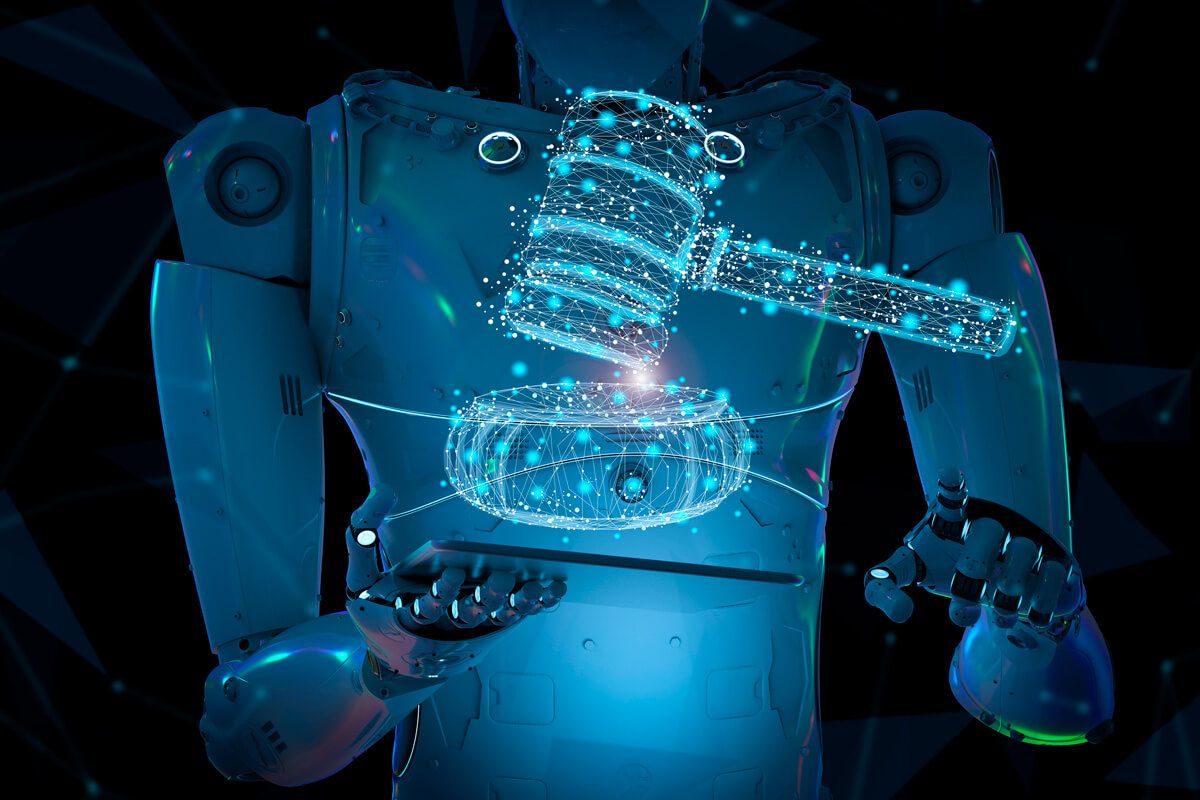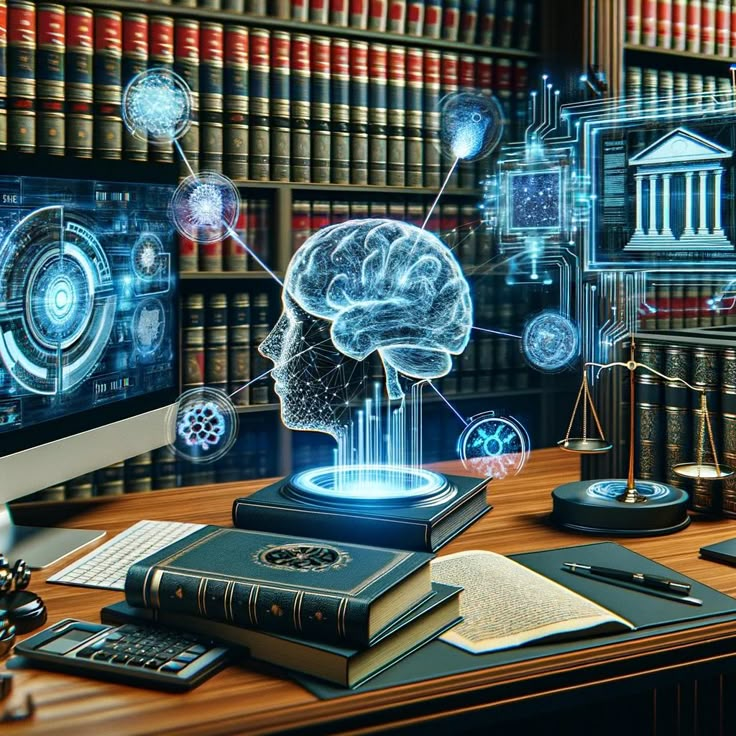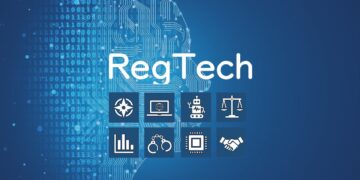The legal profession, long seen as a bastion of tradition and human intellect, is on the cusp of a profound transformation. At the heart of this change lies Artificial Intelligence (AI), a technology that is not just automating tasks but fundamentally reshaping how legal work is done. AI is moving beyond simple data processing to become a powerful tool for analysis, prediction, and strategic decision-making. This shift is challenging the very foundations of legal practice, from the initial stages of case preparation to the final courtroom arguments. It promises to enhance efficiency, reduce costs, and, most importantly, democratize access to justice. This article explores the multifaceted impact of AI on the legal sector, examining its applications, the benefits it offers, the ethical challenges it presents, and what the future holds for lawyers and clients alike.
The Rise of AI in the Legal World
For decades, legal practice has been characterized by meticulous, often tedious, tasks: sifting through mountains of documents, conducting extensive legal research, and manually drafting contracts. AI is now stepping in to automate these processes, freeing up legal professionals to focus on higher-level strategic work. This isn’t about replacing lawyers; it’s about augmenting their capabilities, making them faster, more accurate, and more effective. The integration of AI into legal practice is a response to the growing demand for more efficient and cost-effective legal services in a complex, data-driven world.
A. Automated Legal Research
One of the most significant applications of AI in law is in legal research. Traditional research involved hours, if not days, of searching through case law, statutes, and legal journals. AI-powered platforms can now analyze vast databases of legal documents in seconds, identifying relevant precedents, statutes, and case histories with a speed and accuracy that is humanly impossible. These tools use natural language processing (NLP) to understand the context and nuances of legal language, providing lawyers with comprehensive and highly targeted results.
B. Predictive Analytics
Predictive analytics is perhaps the most revolutionary aspect of AI in law. By analyzing historical case data, AI models can predict the likely outcome of a case, the probability of a motion being granted, or the potential for a settlement. This capability provides lawyers with a significant strategic advantage, allowing them to better advise clients, assess risks, and develop more effective litigation strategies. It transforms legal strategy from an art based on experience into a science based on data.
C. Document Automation and Review
AI is a game-changer for document-intensive tasks like due diligence, e-discovery, and contract review. AI-powered software can automatically review thousands of pages of documents, flagging key clauses, identifying anomalies, and extracting critical information with remarkable speed. This not only dramatically reduces the time and cost associated with these tasks but also minimizes the risk of human error. It also streamlines the process of generating legal documents, from standard contracts to complex agreements, ensuring consistency and accuracy.
D. Case Management and Workflow Automation
Beyond core legal tasks, AI is also being used to optimize the administrative side of law practice. AI-driven case management systems can automate scheduling, organize documents, and track deadlines, ensuring that no critical step is missed. This automation allows law firms to operate more efficiently, improving profitability and client service. It frees up legal professionals to focus on what they do best: thinking, advising, and advocating.
The Profound Benefits of Adopting Legal AI
The benefits of integrating AI into legal practice extend far beyond mere efficiency gains. They represent a fundamental shift in how legal services are delivered and perceived.
A. Increased Efficiency and Productivity
By automating repetitive, low-value tasks, AI frees up lawyers to focus on complex, high-stakes work that requires human judgment and expertise. This leads to a significant increase in overall productivity and a more strategic use of a lawyer’s time. Instead of spending hours on document review, a lawyer can spend that time strategizing with a client or developing a compelling argument.
B. Cost Reduction for Clients
The efficiency gains from AI directly translate into cost savings for clients. Tasks that once required hundreds of billable hours can now be completed in a fraction of the time. This makes legal services more accessible and affordable, particularly for small businesses and individuals who may have been deterred by high legal fees.
C. Enhanced Accuracy and Risk Mitigation
AI’s ability to process and analyze vast amounts of data with precision helps reduce the risk of human error. In a field where a single mistake can have significant consequences, this enhanced accuracy is invaluable. AI tools can identify inconsistencies in contracts, flag non-compliant clauses, and ensure that all relevant documents are considered during litigation, thereby mitigating risk for both law firms and their clients.
D. Improved Access to Justice
Perhaps the most powerful long-term benefit of legal AI is its potential to improve access to justice. By lowering the cost of legal services and providing tools for self-service legal assistance, AI can help bridge the gap between those who can afford legal representation and those who cannot. This could lead to a more equitable and just legal system for all.

Ethical and Practical Challenges on the Horizon
Despite its promise, the integration of AI into legal practice is not without significant challenges and ethical considerations that must be addressed carefully.
A. Data Privacy and Security
AI systems are trained on vast datasets, and in the legal context, this data often includes highly sensitive client information. Ensuring the privacy and security of this data is paramount. Law firms must implement robust security protocols and ensure that their AI tools comply with strict data protection regulations to prevent data breaches and maintain client confidentiality.
B. Algorithmic Bias
One of the most pressing ethical concerns is the potential for algorithmic bias. If the data used to train an AI model reflects historical human biases, the AI can perpetuate or even amplify those biases. In a legal context, this could lead to unfair outcomes, such as biased sentencing recommendations or discriminatory predictive analytics. It is crucial to develop AI systems with fairness in mind and to regularly audit them for bias.
C. Lack of Transparency
Many advanced AI systems, particularly those based on deep learning, operate as “black boxes.” It can be difficult to understand how they arrive at a particular conclusion. In the legal profession, where reasoning and justification are fundamental, this lack of transparency is a significant issue. It is essential to ensure that AI tools used in legal decision-making are explainable and that lawyers can understand and defend their recommendations.
D. The Role of the Lawyer
The rise of AI forces a re-evaluation of the lawyer’s role. While AI can handle many of the routine tasks, it cannot replicate human empathy, strategic judgment, and the nuanced art of persuasion. The future lawyer will be a hybrid professional, a technologist and a legal expert who knows how to leverage AI to serve their clients more effectively. Law schools must adapt their curriculum to prepare students for this new reality.
The Future of Legal Practice: A Collaborative Human-AI Model
The future of the legal profession is not a battle between man and machine, but a partnership. The most successful law firms and legal professionals will be those who embrace a collaborative human-AI model. This partnership will involve a seamless integration of AI tools into daily workflows, with lawyers acting as the strategic architects and human overseers.
A. A New Focus on Human Skills
As AI takes over routine tasks, human lawyers will be able to focus on the skills that only they possess: critical thinking, complex problem-solving, client communication, and emotional intelligence. The value of a lawyer will shift from their ability to process information to their ability to build relationships, negotiate creatively, and provide strategic counsel.
B. Personalized Legal Services
AI will enable law firms to offer more personalized and predictive services. By analyzing a client’s history and industry trends, AI can help lawyers provide proactive advice, identifying potential legal issues before they arise. This move from reactive problem-solving to proactive risk management will create new value for clients.
C. The Rise of Legal Tech Specialization
As AI becomes more integral to legal practice, a new specialization will emerge: legal technologists. These professionals will be a bridge between the legal and tech worlds, helping law firms select, implement, and manage AI tools to maximize their benefit. They will be crucial in ensuring that the technology is used ethically and effectively.
D. Global Legal Collaboration
AI-powered translation and data analysis tools can break down geographical barriers, enabling lawyers to collaborate on international cases more easily. This could lead to a more interconnected and global legal system, where legal expertise is shared across borders.

Conclusion: A New Era of Justice
The integration of AI into the legal profession is not merely an option; it is an inevitability. It promises to automate the mundane, enhance the complex, and fundamentally change the relationship between lawyers and their clients. By embracing AI, the legal sector can become more efficient, accessible, and just. While challenges related to ethics, bias, and transparency must be navigated carefully, the potential rewards for legal professionals and the public they serve are immense. The future of law is not a world without lawyers, but one where lawyers are empowered by intelligent technology to deliver better, more equitable outcomes. The human element will always be the heart of justice, but AI will be the powerful brain that helps it thrive.












